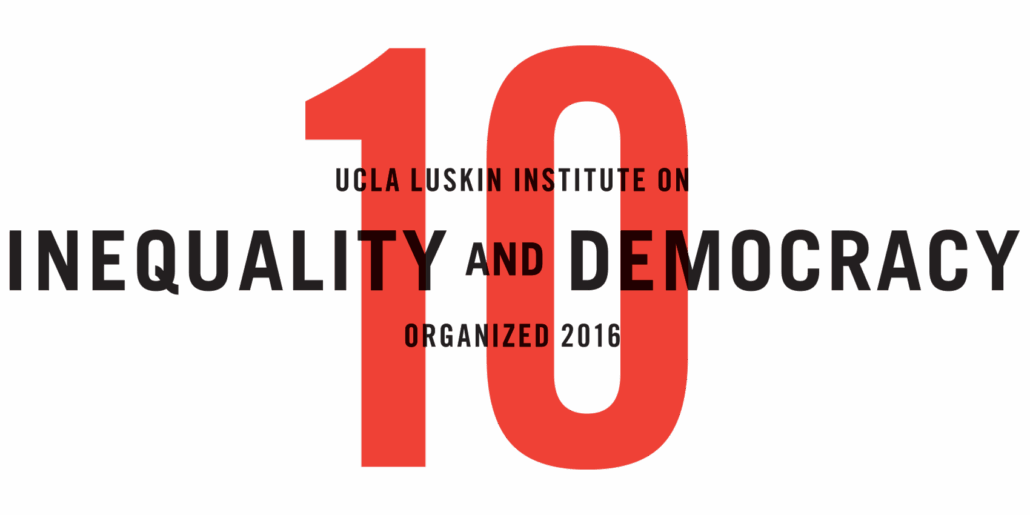Race and Capitalism: Global Territories, Transnational Histories
Friday, October 20, 2017 Conference
Room 2355, Luskin School of Public Affairs, UCLA
No Longer Trapped Inside by Eden Rain McNutt
Friday, October 20, 2017 Conference
Room 2355, Luskin School of Public Affairs, UCLA
No Longer Trapped Inside by Eden Rain McNutt
The UCLA Luskin Institute on Inequality and Democracy, in collaboration with African-American Studies, Chicana/o Studies, History, the Ralph J. Bunche Center for African American Studies, and the Institute for Research on Labor and Employment, and supported by Interdisciplinary and Cross Campus Affairs, is proud to convene a conference on Race and Capitalism: Global Territories, Transnational Histories here at UCLA on Friday, October 20, 2017. The conference is part of a national endeavor on Race and Capitalism led by Michael Dawson and Megan Ming Francis.
This is a closed workshop for faculty and graduate students. If you would like to be invited to attend, please contact Professor Ananya Roy at ananya@luskin.ucla.edu. The four anchor speakers have provided background readings. We ask that all conference attendees familiarize themselves with the texts prior to the conference (please refer to the conference registration email). At the conference, each speaker will make a 10-minute presentation followed by 1-2 questions posed by each discussant and a lengthy discussion with participants and attendees led by the moderator.
Friday, October 20, 2017 Conference
Room 2355, Luskin School of Public Affairs, UCLA
| 9:00 a.m. – 9:20 a.m. | Opening remarks by Michael C. Dawson and Peter James Hudson |
| 9:20 a.m. – 10:50 a.m. | Diasporas of Racial Capitalism, anchored by Nathan Connolly
Moderator: Robert Chao Romero Discussants: Aisha Finch, Megan Ming Francis, Tianna Paschel, Jemima Pierre |
| 10:50 a.m. – 11:00 a.m. | Break |
| 11:00 a.m. – 12:30 p.m. | The Land Question, anchored by Keisha-Khan Y. Perry
Moderator: Ananya Roy Discussants: Eric Avila, Ashleigh Campi, Marcus Hunter, Jovan Scott Lewis |
| 12:30 p.m. – 1:15 p.m. | Lunch |
| 1:15 p.m. – 2:45 p.m. | Imperialism and its Limits, anchored by Allan E. S. Lumba
Moderator: Raul Hinojosa-Ojeda Discussants: César Ayala, Kimberly Kay Hoang, Vinay Lal, Michael Ralph |
| 2:45 p.m. – 3:00 p.m. | Break |
| 3:00 p.m. – 4:30 p.m. | Race, Capitalism, and Settler-Colonialism, anchored by Alyosha Goldstein
Moderator: Shannon Speed Discussants: Adom Getachew, Katsuya Hirano, Saree Makdisi, Kyle T. Mays |
| 4:30 p.m. – 5:00 p.m. | Closing Remarks by Kelly Lytle Hernandez and Ananya Roy |
| 5:00 p.m. – 6:30 p.m. | Reception, Luskin Commons, UCLA |
The Luskin School of Public Affairs is located in the Northeast part of campus (337 Charles E. Young Drive East Los Angeles, CA 90095) and the conference will be held in room 2355, followed by a reception in 3383 the Luskin Commons/Patio.
The nearest parking lot is Structure 3. Structure 3 has a limited number of Pay-by-Space parking spots. Otherwise, you may purchase an all-day permit from any UCLA parking kiosk: Instructions to Pick Up Parking Pass (Please plan extra time to purchase your permit and to find parking.)
(For external speakers) If coming from the UCLA Luskin Conference Center, you can ask the front desk about taking the shuttle to the Luskin School of Public Affairs building. There is an 8:30 a.m. scheduled pick-up time.
(for external speakers)
Overnight accommodations will be at the UCLA Luskin Conference Center (425 Westwood Plaza, Los Angeles, CA 90095).
Light breakfast will be available.
Lunch will be from 12:30 –1:15 p.m.
Hors d’oeuvres will be available during the reception.
Adom Getachew
 Adom Getachew is the Neubauer Family Assistant Professor of Political Science and the College at the University of Chicago. She holds a joint PhD in Political Science and African-American Studies from Yale University. Her research and teaching interests include modern political thought with a focus on the nineteenth and twentieth centuries, the history of international law, theories of empire and race, black political thought and post-colonial political theory. Her current book project Worldmaking after Empire: The Rise and Fall of Self-Determination (under contract with Princeton) reconstructs the animating questions, debates and institutional visions anti-colonial nationalists of the Black Atlantic pursued during the height of decolonization.
Adom Getachew is the Neubauer Family Assistant Professor of Political Science and the College at the University of Chicago. She holds a joint PhD in Political Science and African-American Studies from Yale University. Her research and teaching interests include modern political thought with a focus on the nineteenth and twentieth centuries, the history of international law, theories of empire and race, black political thought and post-colonial political theory. Her current book project Worldmaking after Empire: The Rise and Fall of Self-Determination (under contract with Princeton) reconstructs the animating questions, debates and institutional visions anti-colonial nationalists of the Black Atlantic pursued during the height of decolonization.
Aisha Finch
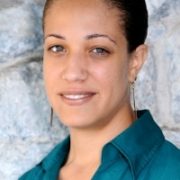
Aisha Finch holds a Ph.D. in History from New York University, and is currently an Associate Professor of Gender Studies and African American Studies at UCLA. Her areas of research include Caribbean history, Black feminism, African Diaspora studies, and comparative slavery. She is also the Associate Director for the University of California Consortium for Black Studies. Professor Finch is the recipient of the Harriet Tubman Book Award from the Lapidus Center for the Historical Analysis of Transatlantic Slavery. Her research has been supported by the University of California Office of the President, the Ford Foundation and the Social Science Research Council. Her book, Rethinking Slave Rebellion in Cuba, La Escalera and the Insurgencies of 1841-44, was published in 2015 by the University of North Carolina Press.
Alfredo Gonzalez
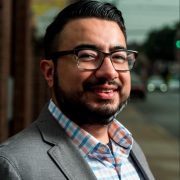 Alfredo Gonzalez is a doctoral candidate in the department of political science at the University of Chicago. His research is located at the intersection of race and politics, American political development, naturalization policy, social movements, and military sociology. Gonzalez’s dissertation is animated by examining how white supremacy manifests itself in the way the U.S. politically incorporates non-citizens vis-à-vis naturalization processes. The U.S. historically extends an invitation to immigrants and non-citizens to fill its military ranks as they prepare to fortify their defense force during each moment of conflict or war. This invitation to participate in the military for non-citizens is traditionally combined with the incentive of acquiring legal citizenship upon enlisting for active duty. Titled, Other Than Honorable: The Rise and Decline of Citizenship-for-Service, Gonzalez’s dissertation offers an explanation to the growing limitations and restrictions non-citizen service members are faced with when attempting to normalize their citizenship status during and after their active service. This archival study focuses on a critical conjuncture between WWII (established service requirements) and the 1965 Hart-Celler Act (established residency and service requirements for naturalization) to demonstrate how Congress legislatively gained power to restrict, and at times deny, non-white immigrant service members access to naturalization—regardless of military service. Gonzalez is a veteran of the U.S. Marine Corps and Iraq War.
Alfredo Gonzalez is a doctoral candidate in the department of political science at the University of Chicago. His research is located at the intersection of race and politics, American political development, naturalization policy, social movements, and military sociology. Gonzalez’s dissertation is animated by examining how white supremacy manifests itself in the way the U.S. politically incorporates non-citizens vis-à-vis naturalization processes. The U.S. historically extends an invitation to immigrants and non-citizens to fill its military ranks as they prepare to fortify their defense force during each moment of conflict or war. This invitation to participate in the military for non-citizens is traditionally combined with the incentive of acquiring legal citizenship upon enlisting for active duty. Titled, Other Than Honorable: The Rise and Decline of Citizenship-for-Service, Gonzalez’s dissertation offers an explanation to the growing limitations and restrictions non-citizen service members are faced with when attempting to normalize their citizenship status during and after their active service. This archival study focuses on a critical conjuncture between WWII (established service requirements) and the 1965 Hart-Celler Act (established residency and service requirements for naturalization) to demonstrate how Congress legislatively gained power to restrict, and at times deny, non-white immigrant service members access to naturalization—regardless of military service. Gonzalez is a veteran of the U.S. Marine Corps and Iraq War.
Allan E. S. Lumba
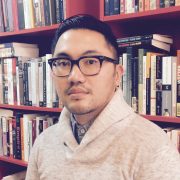
Allan E. S. Lumba is an assistant professor in the Department of History at the University of Michigan and a postdoctoral scholar in the Michigan Society of Fellows. He received his Ph.D. from the Department of History at the University of Washington. He is currently finishing up his book manuscript, “Monetary Authorities: Capitalism and Decolonization in the American Colonial Philippines,” which charts the historical intersections and tensions between race, knowledge, sovereignty, and the capitalist market in the United States and the Philippines. Previously, he served as Global American Studies postdoctoral fellow at Harvard University’s Charles Warren Center and is the past recipient of numerous research support including the Fulbright-Hays Dissertation Research Grant and the Foreign Language Areas Studies Fellowship.
Alyosha Goldstein
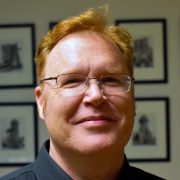
Alyosha Goldstein is an Associate Professor of American Studies at the University of New Mexico. He is the author of Poverty in Common: The Politics of Community Action during the American Century (Duke University Press, 2012), the editor of Formations of United States Colonialism (Duke University Press, 2014), and the co-editor (with Juliana Hu Pegues and Manu Vimalassery) of “On Colonial Unknowing,” a special issue of Theory & Event (2016) and (with Alex Lubin) of “Settler Colonialism,” a special issue of South Atlantic Quarterly (2008). His current book project is a study of the entanglements of U.S. colonialism, racial capitalism, and economies of dispossession and conciliation in the historical present.
Ananya Roy
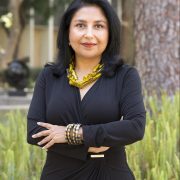
Ananya Roy is Professor of Urban Planning, Social Welfare and Geography and inaugural Director of the Institute on Inequality and Democracy at UCLA Luskin. She holds The Meyer and Renee Luskin Chair in Inequality and Democracy. Previously she was on the faculty at the University of California, Berkeley.
Ananya’s research and scholarship has a determined focus on poverty and inequality and lies in four domains: how the urban poor in cities from Kolkata to Chicago face and fight dispossession and displacement; how global financialization, working in varied realms from microfinance to real-estate speculation, creates new markets in debt and risk; how the efforts to manage and govern the problem of poverty reveal the contradictions and limits of liberal democracy; how economic prosperity and aspiration in the global South is creating new potentialities for programs of human development and social welfare. Her most recent book is Encountering Poverty: Thinking and Acting in an Unequal World (UC Press, 2016).
Most recently, Ananya’s public scholarship has challenged white supremacy and white power. From the short video, 3 Truths About Trumpism, to the organization of a nationwide day of Teach.Organize.Resist, her work mobilizes the power of knowledge to “divest from whiteness.”
Ashleigh Campi
 Ashleigh Campi is a Research and Teaching Faculty of Gender Studies at the University of Southern California. Her work seeks to clarify how cultural practice, including gender and sexual cultures, mediate political and economic subjectivities. She is currently working on a book manuscript that takes up these questions in the case of American neoliberalism. Through historical case work, the project offers an account of the role of right-wing movement actors in advancing free-market reform, and theorizes how right-wing tendencies cultivate submission to authority through cultural practice. An article from the manuscript is forthcoming at Polity. Her second project is on postfeminism and white identity.
Ashleigh Campi is a Research and Teaching Faculty of Gender Studies at the University of Southern California. Her work seeks to clarify how cultural practice, including gender and sexual cultures, mediate political and economic subjectivities. She is currently working on a book manuscript that takes up these questions in the case of American neoliberalism. Through historical case work, the project offers an account of the role of right-wing movement actors in advancing free-market reform, and theorizes how right-wing tendencies cultivate submission to authority through cultural practice. An article from the manuscript is forthcoming at Polity. Her second project is on postfeminism and white identity.
Campi’s teaching focuses on right and left social movements in the US, authority, affective labor, sexuality and power, and engages feminism, in particular black and psychoanalytic feminisms, critical race theory, and queer theory.
César Ayala
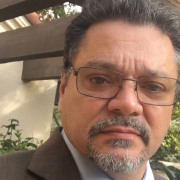
César Ayala is a comparative historical sociologist. He is currently a Professor of Sociology at UCLA. He is a scholar of U.S. imperialism with a regional interest in the Caribbean. He is the author of American Sugar Kingdom: the Plantation Economy of the Spanish Caribbean, 1898-1934 (Chapel Hill: University of North Carolina Press, 1999) and coauthor with Rafael Bernabe of Puerto Rico in the American Century: a History Since 1898 (Chapel Hill: University of North Carolina Press, 2007). He is currently working on a comparative project on “the bordering of America,” a study of U.S. imperialism/colonialism in the Philippines, Hawaii, Cuba, Puerto Rico, and New Mexico.
Emily Katzenstein
 Emily Katzenstein is a graduate student in Political Theory at the University of Chicago. She also works as a project coordinator for the Race and Capitalism Project in Chicago. Her work explores the reproduction of racialized economic inequality in financialized capitalism. Her dissertation analyzes how discourses about justice in the commodification and distribution of financial risk are racialized.
Emily Katzenstein is a graduate student in Political Theory at the University of Chicago. She also works as a project coordinator for the Race and Capitalism Project in Chicago. Her work explores the reproduction of racialized economic inequality in financialized capitalism. Her dissertation analyzes how discourses about justice in the commodification and distribution of financial risk are racialized.
Eric Avila
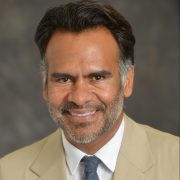 Eric Avila is Professor of History, Chicana and Chicano Studies, and Urban Planning at UCLA, where he joined the faculty in 1997. Since then he has published numerous books and articles broadly pertaining to the interrelated topics of urbanization, racial inequality and cultural representation, with a strong emphasis upon the history of twentieth-century Los Angeles. He is author of Popular Culture in the Age of White Flight: Fear and Fantasy in Suburban Los Angeles (California, 2004), The Folklore of the Freeway: Race and Revolt in the Modernist City (Minnesota, 2014), and American Cultural History: A Very Short Introduction (forthcoming, Oxford). He also has a new book project underway, Los Angeles Between Watts and Rodney King: The Birth of a Global City.
Eric Avila is Professor of History, Chicana and Chicano Studies, and Urban Planning at UCLA, where he joined the faculty in 1997. Since then he has published numerous books and articles broadly pertaining to the interrelated topics of urbanization, racial inequality and cultural representation, with a strong emphasis upon the history of twentieth-century Los Angeles. He is author of Popular Culture in the Age of White Flight: Fear and Fantasy in Suburban Los Angeles (California, 2004), The Folklore of the Freeway: Race and Revolt in the Modernist City (Minnesota, 2014), and American Cultural History: A Very Short Introduction (forthcoming, Oxford). He also has a new book project underway, Los Angeles Between Watts and Rodney King: The Birth of a Global City.
Hannah Appel

Hannah is an Assistant Professor of Anthropology and Global Studies at UCLA. Her research and teaching focus on the daily life of capitalism, from the U.S. based oil industry in central Africa to the intersection of finance, debt, and inequality in the United States. Her current book project—Oil and the Licit Life of Capitalism in Equatorial Guinea—is both an account of a specific capitalist project—US oil companies working off the shores of central Africa—and an exploration of more general forms and processes—the offshore, contracts, infrastructures, something called “the” economy—that facilitate diverse capitalist projects around the world. Hannah is also an active organizer with the Debt Collective and the Economic Space Agency, projects that work to reimagine finance, capitalism, and economic possibilities for our time, and demand that the tools of critical theory be sharpened and mobilized in public praxis.
Jemima Pierre
 Jemima Pierre is Associate Professor of African American Studies and Anthropology at University of California, Los Angeles, where she also serves as the Associate Director of the James Coleman African Studies Center, and as Chair of the Master’s in African Studies Program. Her research and teaching interests are located in the overlaps between African Studies and African Diaspora Studies and engage three broad areas: 1) race and political economy; 2) transnationalism and diaspora and; 3) the politics of knowledge production. She is the author of The Predicament of Blackness: Postcolonial Ghana and the Politics of Race (Winner of the 2014 Elliot Skinner Book Award in Africanist Anthropology; long listed for the 2013 OCM – BOCAS Literary Prize; Recipient for the 2012 Bevington Fund First Book Grant). She is working on two projects. She is currently completing a book, Race and Africa: Cultural and Historical Legacies, which is under contract with Routledge Press (“Framing 21st Century Social Issues Series”). And, she is carrying out a longitudinal archival study of resource extraction in West Africa through the framework of racial capitalism. Dr. Pierre’s essays on global racial formation, Ghana, immigration, and African diaspora theory and politics
have appeared in a number of academic journals including, Cultural Anthropology, Feminist Review, Social Text, Identities, Cultural Dynamics, Transforming Anthropology, Journal of Haitian Studies, Latin American Perspective, American Anthropologist, Philosophia Africana, Politique Africaine, and the Black Scholar.
Jemima Pierre is Associate Professor of African American Studies and Anthropology at University of California, Los Angeles, where she also serves as the Associate Director of the James Coleman African Studies Center, and as Chair of the Master’s in African Studies Program. Her research and teaching interests are located in the overlaps between African Studies and African Diaspora Studies and engage three broad areas: 1) race and political economy; 2) transnationalism and diaspora and; 3) the politics of knowledge production. She is the author of The Predicament of Blackness: Postcolonial Ghana and the Politics of Race (Winner of the 2014 Elliot Skinner Book Award in Africanist Anthropology; long listed for the 2013 OCM – BOCAS Literary Prize; Recipient for the 2012 Bevington Fund First Book Grant). She is working on two projects. She is currently completing a book, Race and Africa: Cultural and Historical Legacies, which is under contract with Routledge Press (“Framing 21st Century Social Issues Series”). And, she is carrying out a longitudinal archival study of resource extraction in West Africa through the framework of racial capitalism. Dr. Pierre’s essays on global racial formation, Ghana, immigration, and African diaspora theory and politics
have appeared in a number of academic journals including, Cultural Anthropology, Feminist Review, Social Text, Identities, Cultural Dynamics, Transforming Anthropology, Journal of Haitian Studies, Latin American Perspective, American Anthropologist, Philosophia Africana, Politique Africaine, and the Black Scholar.
Jovan Scott Lewis

Jovan Lewis is an Assistant Professor of African-American Studies and Geography at the University of California, Berkeley, as well as the co-chair of the Economic Disparities Research Cluster at Berkeley’s Haas Institute for a Fair and Inclusive Society.
Jovan’s research examines race through the economic ethics, rationalizations, and practices that organize the lived experience of poverty and inequality in the Caribbean and the United States. His work in Jamaica, where he researched what he calls the “sufferation” economy, explored the social practices and cultural forms that facilitate the locating, reconciling, and normalizing of structural economic and social inequality through local market frames. Jovan’s current book project examines how disadvantaged black youth in Jamaica engaged in the practice of international “lottery scamming” mobilize a reparative logic of seizure in utilizing the development apparatuses of internet communication technology, customer service procedures, and money transfer services, to secure economic and social mobility. Jovan is currently at work on his newest project in Tulsa, Oklahoma where his research is concerned with the structural and infrastructural frictions of poverty.
Katsuya Hirano
 Katsuya Hirano teaches history at UCLA. He is the author of The Politics of Dialogic Imagination: Power and Popular Culture in Early Modern Japan (U of Chicago Press). He has published numerous articles and book chapters on cultural and intellectual history of Japan, settler colonialism, and critical theory, including “Thanatopolitics in the Making of Japan’s Hokkaido: Settler Colonialism and Primitive Accumulation” (Critical Historical Studies). His current book project examines the relation between racism and capitalism in the making of the imperial Japanese nation with a focus on the settler-colonization of the lands that once belonged to the indigenous people, the Ainu.
Katsuya Hirano teaches history at UCLA. He is the author of The Politics of Dialogic Imagination: Power and Popular Culture in Early Modern Japan (U of Chicago Press). He has published numerous articles and book chapters on cultural and intellectual history of Japan, settler colonialism, and critical theory, including “Thanatopolitics in the Making of Japan’s Hokkaido: Settler Colonialism and Primitive Accumulation” (Critical Historical Studies). His current book project examines the relation between racism and capitalism in the making of the imperial Japanese nation with a focus on the settler-colonization of the lands that once belonged to the indigenous people, the Ainu.
Keisha-Khan Y. Perry

Keisha-Khan Y. Perry is currently an Associate Professor of Africana Studies at Brown University where she specializes in race, gender and politics in the Americas, urban geography and questions of citizenship, intellectual history and disciplinary formation, and the interrelationship between scholarship, pedagogy and political engagement. Her most recent work, Black Women against the Land Grab: The Fight for Racial Justice in Brazil (fall 2013, Minnesota Press), is an ethnographic study of black women’s activism in Brazilian cities, specifically an examination of black women’s participation and leadership in neighborhood associations, and the re-interpretations of racial and gender identities in urban spaces. Winner of the National Women’s Studies Association 2014 Gloria E. Anzaldúa Book Award, this book includes an analysis of the relationship between environmental justice movements and land and housing rights struggles in the northeastern Brazilian city of Salvador. This year as a Faculty Fellow at the Brown University Pembroke Center for Research and Teaching on Women, she is completing the research for her next book project, Evictions and Convictions: The Gendered Racial Logic of Black Dispossession in New York City.
Kelly Lytle Hernandez

Professor Kelly Lytle Hernandez is the Director of the Ralph J. Bunche Center for African American Studies at UCLA and one of the nation’s leading experts on race, immigration, and mass incarceration. She is the author of the award-winning book, Migra! A History of the U.S. Border Patrol (University of California Press, 2010), and City of Inmates: Conquest, Rebellion, and the Rise of Human Caging in Los Angeles (University of North Carolina Press, 2017). Currently, Professor Lytle Hernandez is the research lead for the Million Dollar Hoods project, which maps how much is spent on incarceration per neighborhood in Los Angeles County.
Kimberly Kay Hoang
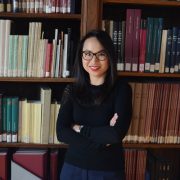
Kimberly Kay Hoang is Assistant Professor of Sociology and the College at the University of Chicago. She is the author of Dealing in Desire. She is currently working on a second monograph that looks at foreign investment in Southeast Asia’s frontier and emerging markets.
Kyle T. Mays
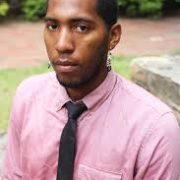
Kyle T. Mays (Black/Saginaw Anishinaabe) is a transdisciplinary scholar of Indigenous Studies, Afro-Indigenous Studies, and Indigenous popular culture. At present, he is working on three books. The first is titled, Hip Hop Beats, Indigenous Rhymes: Modernity and Hip Hop in Indigenous North America (Forthcoming, March 2018 with SUNY Press). This book explores how Indigenous Hip Hop artists challenge settler colonialism and construct modern, Indigenous identities through Hip Hop culture. The second book is titled, The Indigenous Motor City: Indigenous People and the Making of Modern Detroit. This book examines how Indigenous people and representations of them were central to the development of Detroit, from the late 19th century the present. He is also co-editing an anthology titled, Decolonizing Hip Hop: Blackness and Indigeneity in Hip Hop Culture (under contract with Sense Publishers: Youth, Media, and Culture Series).
Marcus Hunter
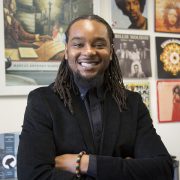 Associate professor in sociology, Professor Hunter is also Chair of the department of African American Studies at UCLA. Professor Hunter is coauthor of the new book Chocolate Cities: The Black Map of American Life (with Dr. Zandria F. Robinson, Rhodes College). Published by University of California Press (January 2018), Chocolate Cities explores the experiences and politics of Black Americans since 1900 offering a new geography of American life. His first book, Black Citymakers: How the Philadelphia Negro Changed Urban America revisits the Black Seventh Ward neighborhood immortalized in W.E.B. Du Bois’s The Philadelphia Negro. Professor Hunter’s research and commentary on urban black life and inequality has been featured in journals and news media such as CSPAN’s BookTV, the Du Bois Review, Current Anthropology, City & Community, Sexuality Research & Social Policy, Talking Points Memo, The Washington Post and The New York Times.
Associate professor in sociology, Professor Hunter is also Chair of the department of African American Studies at UCLA. Professor Hunter is coauthor of the new book Chocolate Cities: The Black Map of American Life (with Dr. Zandria F. Robinson, Rhodes College). Published by University of California Press (January 2018), Chocolate Cities explores the experiences and politics of Black Americans since 1900 offering a new geography of American life. His first book, Black Citymakers: How the Philadelphia Negro Changed Urban America revisits the Black Seventh Ward neighborhood immortalized in W.E.B. Du Bois’s The Philadelphia Negro. Professor Hunter’s research and commentary on urban black life and inequality has been featured in journals and news media such as CSPAN’s BookTV, the Du Bois Review, Current Anthropology, City & Community, Sexuality Research & Social Policy, Talking Points Memo, The Washington Post and The New York Times.
Megan Ming Francis

Megan Ming Francis is an Associate Professor in the Department of Political Science at the University of Washington. Francis specializes in the study of American politics, race, and the development of constitutional law. She is the author of the award winning book, Civil Rights and the Making of the Modern American State (2014). This book tells the story of how the early campaign against lynchings and mob violence of the National Association for the Advancement of Colored People (NAACP) shaped the modern civil rights movement. Francis is currently at work on a second book project that examines the role of the criminal justice system in the rebuilding of southern political and economic power after the Civil War.
Michael C. Dawson
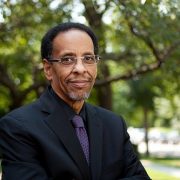
Michael C. Dawson is the John D. MacArthur Professor of Political Science at the University of Chicago. Dawson received his doctorate degree from Harvard. He has directed numerous public opinion studies that focus on race and public opinion. His research interests include black political behavior and public opinion, political economy, and black political ideology. More recently he has combined his quantitative work with work in political theory. His first two books, Behind the Mule: Race and Class in African-American Politics and Black Visions: The Roots of Contemporary African-American Political Ideologies, won multiple awards. Recent books include Not In Our Lifetimes: The Future of Black Politics, and Blacks In and Out of the Left. Recently with Megan Ming Francis Dawson launched a nationwide, multi-university project to study the intersection of race and capitalism. Recent work from Dawson related to this project includes the 2016 articles in Public Culture (with Francis), and Critical Historical Studies. He is the founding director of the Center for the Study of Race, Politics and Culture at the University of Chicago. Dawson was elected to the American Academy of Arts and Sciences in 2006. In 2017 Dawson was the first awardee of the American Political Science Association’s Hanes Walton, Jr. Lifetime Achievement Award for the Study of Race and Ethnic Politics.
Michael Ralph
 Michael Ralph is an Associate Professor in the Department of Social and Cultural Analysis at New York University, where he serves as the Director of Undergraduate Studies.
Michael Ralph is an Associate Professor in the Department of Social and Cultural Analysis at New York University, where he serves as the Director of Undergraduate Studies.
Michael is the author of the University of Chicago Press book, Forensics of Capital. He is Editor-in-Chief of Transforming Anthropology, the flagship journal of the Association of Black Anthropologists. Michael wrote and directed the forthcoming animated, short, musical, “Fishing,” which explores the ingenuity of people who are incarcerated. Michael is responsible for the Treasury of Weary Souls, the world’s most comprehensive ledger of insured slaves.
Nathan Connolly
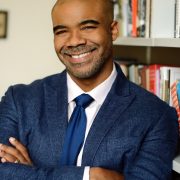
Nathan Connolly is the Herbert Baxter Adams Associate Professor of History at the Johns Hopkins University and co-host of the American History podcast, BackStory. In 2014, Connolly published his first book, A World More Concrete: Real Estate and the Remaking of Jim Crow South Florida, with the University of Chicago Press. The book made Connolly the first African American author ever to win either the Kenneth T. Jackson Book Award from the Urban History Association or the Bennett H. Wall Award in economic history from the Southern Historical Association. A World More Concrete also won the 2015 Liberty Legacy Foundation Book Award from the Organization of American Historians. In addition to his published work, Connolly helped launch the digital mapping site, Mapping Inequality: Redlining in New Deal America, named among National Geographic’s “Best Maps of 2016.” And with Keisha Blain, he created for Public Books the crowd-sourced syllabus, Trump Syllabus 2.0, the most visited webpage Public Books has ever launched.
Peter James Hudson
 Peter James Hudson is an historian who obtained his Ph.D. in American Studies from New York University and currently teaches in the departments of history and African American studies at the University of California, Los Angeles. His research interests are in the history of capitalism, white supremacy, and U.S. imperialism; the intellectual and political-economic history of the Caribbean and the Black world; and the history of Black radicalism and global anti-imperialism. Hudson’s essays and reviews have appeared in Black Agenda Report, Small Axe: A Caribbean Journal of Criticism, Radical History Review, Race & Class: A Journal on Racism, Globalisation, and Empire, Haitï Liberté, the CLR James Journal, Chimurenga, the Los Angeles Review of Books, the Boston Review of Books, Transition: An International Review, and elsewhere. Hudson is the author of Banking on Empire: How Wall Street Colonized the Caribbean (Chicago, 2017).
Peter James Hudson is an historian who obtained his Ph.D. in American Studies from New York University and currently teaches in the departments of history and African American studies at the University of California, Los Angeles. His research interests are in the history of capitalism, white supremacy, and U.S. imperialism; the intellectual and political-economic history of the Caribbean and the Black world; and the history of Black radicalism and global anti-imperialism. Hudson’s essays and reviews have appeared in Black Agenda Report, Small Axe: A Caribbean Journal of Criticism, Radical History Review, Race & Class: A Journal on Racism, Globalisation, and Empire, Haitï Liberté, the CLR James Journal, Chimurenga, the Los Angeles Review of Books, the Boston Review of Books, Transition: An International Review, and elsewhere. Hudson is the author of Banking on Empire: How Wall Street Colonized the Caribbean (Chicago, 2017).
Raul Hinojosa-Ojeda
 Raul Hinojosa-Ojeda is the Founding Director of the North American Integration and Development Center and Associate Professor in the Division of Social Sciences and the César E. Chávez Department of Chicana and Chicano Studies at the University of California, Los Angeles. Born in Mexico and raised in Chicago, he received a B.A. (Economics), M.A. (Anthropology) and Ph.D. (Political Science) at the University of Chicago. He is the author of numerous articles and books on the political economy of regional integrations in various parts of the world, including trade, investment and migration relations between the U.S., Mexico, Latin American and the Pacific Rim. Professor Hinojosa has held various academic and policy research positions in a variety of universities and public institutions, including the World Bank, InterAmerican Development Bank, the White House Council of Economic Advisors, the United States Trade Representative, Stanford University, and the University of California Berkeley. Professor Hinojosa founded the North American Integration and Development (NAID) Center at UCLA in 1995, dedicated to developing innovative research agendas and policy pilot projects concerning globalization and development.
Raul Hinojosa-Ojeda is the Founding Director of the North American Integration and Development Center and Associate Professor in the Division of Social Sciences and the César E. Chávez Department of Chicana and Chicano Studies at the University of California, Los Angeles. Born in Mexico and raised in Chicago, he received a B.A. (Economics), M.A. (Anthropology) and Ph.D. (Political Science) at the University of Chicago. He is the author of numerous articles and books on the political economy of regional integrations in various parts of the world, including trade, investment and migration relations between the U.S., Mexico, Latin American and the Pacific Rim. Professor Hinojosa has held various academic and policy research positions in a variety of universities and public institutions, including the World Bank, InterAmerican Development Bank, the White House Council of Economic Advisors, the United States Trade Representative, Stanford University, and the University of California Berkeley. Professor Hinojosa founded the North American Integration and Development (NAID) Center at UCLA in 1995, dedicated to developing innovative research agendas and policy pilot projects concerning globalization and development.
Robert Chao Romero
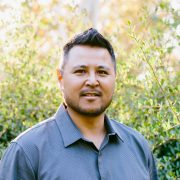 Robert Chao Romero is an Associate Professor of Chicana/o Studies and Asian American Studies at UCLA. He received his Ph.D. in Latin American history from UCLA and his J.D. from U.C. Berkeley. His first book, The Chinese in Mexico, 1882-1940, received the Latina/o Studies Section Book Award from the Latin American Studies Association. Romero’s current research examines the role of religion in Latino social movements. As part of his engaged scholarship, he co-directs one expression of the new Sanctuary movement in Southern California called Matthew 25.
Robert Chao Romero is an Associate Professor of Chicana/o Studies and Asian American Studies at UCLA. He received his Ph.D. in Latin American history from UCLA and his J.D. from U.C. Berkeley. His first book, The Chinese in Mexico, 1882-1940, received the Latina/o Studies Section Book Award from the Latin American Studies Association. Romero’s current research examines the role of religion in Latino social movements. As part of his engaged scholarship, he co-directs one expression of the new Sanctuary movement in Southern California called Matthew 25.
Saree Makdisi
 Saree Makdisi is Professor of English and Comparative Literature at UCLA and the author of, among other books, Making England Western: Occidentalism, Race and Imperial Culture (Chicago, 2014) and Palestine Inside Out: An Everyday Occupation (Norton, 2010).
Saree Makdisi is Professor of English and Comparative Literature at UCLA and the author of, among other books, Making England Western: Occidentalism, Race and Imperial Culture (Chicago, 2014) and Palestine Inside Out: An Everyday Occupation (Norton, 2010).
Shannon Speed

Shannon Speed is a citizen of the Chickasaw Nation. She is Director of the American Indian Studies Center and an Associate Professor of Gender Studies and Anthropology at UCLA. Dr. Speed has worked for the last two decades in Mexico and in the U.S on issues of indigenous autonomy, sovereignty, gender, violence, migration, and social justice. She has published five books and edited volumes, including Rights in Rebellion: Human Rights and Indigenous Struggle in Chiapas. She has published numerous journal articles and book chapters in English and Spanish, as well as two books in Spanish. Her forthcoming book is called States of Violence: Indigenous Women Migrants in the Era of Neoliberal Multicriminalism.
Tianna Paschel

Tianna Paschel is assistant professor of African American Studies at the University of California – Berkeley. Previously, she served as the Neubauer Family Assistant Professor of Political Science at the University of Chicago. Her research centers on understanding the relationship between racial inequality, politics, and globalization in the Americas. She is the author of the award-winning book, Becoming Black Political Subjects: Movements and Ethno-Racial Rights in Colombia and Brazil, which draws on ethnographic and archival methods to explore the shift in the 1990s from ideas of unmarked universal citizenship to multicultural citizenship regimes and the recognition of specific rights for black populations by Latin American states. Her work can also be found in the American Journal of Sociology, the Du Bois Review, SOULS: A Critical Journal of Black Politics, Culture and Society, and Ethnic and Racial Studies. Dr. Paschel is a Ford Fellow, a member of the American Political Science Association Task Force on Race and Class Inequality and has worked for over a decade in solidarity with Afro-Colombian struggles through the Afro-Colombian Solidarity Network (ACSN), Group of Academics and Intellectuals in Defense of the Colombian Pacific (GAIDEPAC) and the Network of Anti-Racist Research and Action (RAIAR).
Vinay Lal
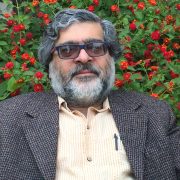
Vinay Lal is Professor of History and Asian American Studies at UCLA. He writes widely on Indian history, historiography, public and popular culture in India, the Indian diaspora, colonialism, human rights, the architecture of nonviolence, Gandhi, and the global politics of knowledge systems. His seventeen books include the two-volume Oxford Anthology of the Modern Indian City (Oxford, 2013); Political Hinduism: The Religious Imagination in Public Spheres (ed., Oxford, 2009); The Future of Knowledge and Culture: A Dictionary for the Twenty-first Century, co-edited with Ashis Nandy (Viking Penguin, 2005); Of Cricket, Guinness and Gandhi: Essays on Indian History and Culture (Penguin, 2005); The History of History: Politics and Scholarship in Modern India (Oxford, 2003); Empire of Knowledge: Culture and Plurality in the Global Economy (Pluto Press, 2002); and, most recently, A Passionate Life: Writings by and on Kamaladevi Chattopadhyay (co-edited, Zubaan Books, 2017). He blogs at vinaylal.wordpress.com; his YouTube channel is https://www.youtube.com/user/dillichalo.
“Race and Capitalism: Global Territories, Transnational Histories” Digital Volume
This collection provides a glimpse of our invited scholars’ key provocations as well as of the questions and comments posed by invited interlocutors. It is not a culmination but instead a benchmark in the ongoing efforts to build collaborative scholarship concerned with race and capitalism.
For questions about the conference, please contact:
Welcome Stranger! This is an example Text for your fantastic Promo Box! Feel Free to delete it and replace it with your own fancy Message!
337 Charles E. Young Drive East
Los Angeles, CA 90095
challengeinequality@luskin.ucla.edu
via Bluesky @challengeineq.bsky.social
